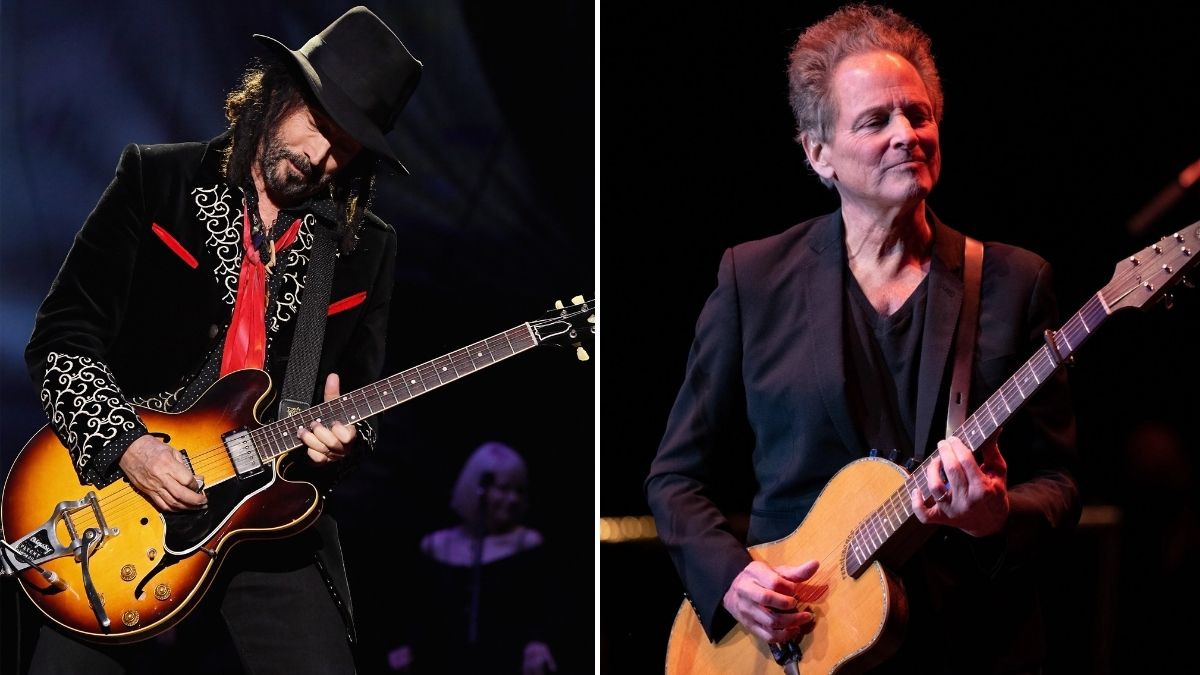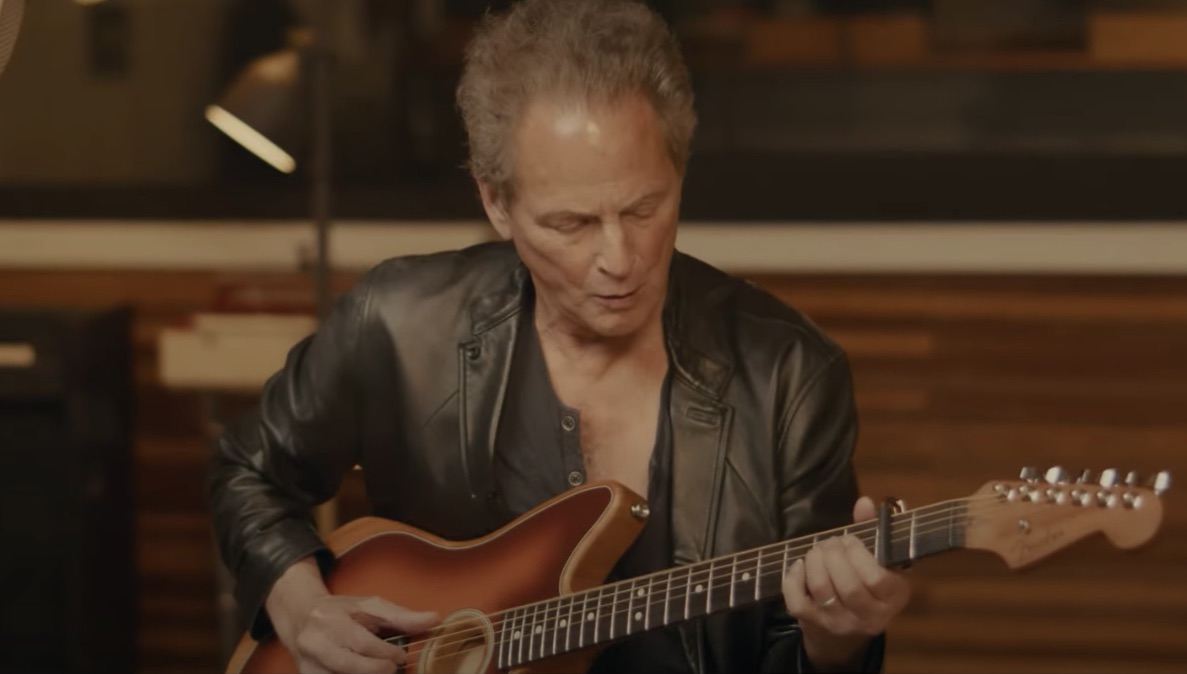“I had to do something I've never really done before. I don't play like Lindsey.” Mike Campbell talks about replacing Lindsey Buckingham in Fleetwood Mac
The former Heartbreaker says his short time in Fleetwood Mac was an education and a challenge for one specific reason

Mike Campbell had enjoyed a fruitful career as a member of Tom Petty & the Heartbreakers before Fleetwood Mac came calling in 2018. But as the guitarist explains in a new interview, his short time with the long-running Mac proved to be quite an education.
Campbell cofounded Tom Petty & the Heartbreakers in 1976 and went on to release 13 studio albums with the band. Along the way he co-produced 10 Heartbreakers releases and three of Petty's solo records, in addition to performing hundreds of shows with the group worldwide.
Just a year after Petty’s sudden death in 2017, Fleetwood Mac tapped him and Crowded House guitarist/singer Neil Finn to replace Lindsey Buckingham after the guitarist was fired.
While Campbell is known for his versatility — he's racked up credits writing and recording with Bob Seger, Taj Mahal, Bad Religion and Mary J Blige — he says mastering Buckingham's nuanced rhythm and lead style was something entirely new for him.
"It was a challenge because I don't usually play other people's guitar parts," he tells Guitar World. “I had to do something I've never really done before and try to emulate some of Lindsey's melodies that the songs need. I don't play like Lindsey, but I was able to do the songs justice.”
As Campbell explains, he gained quite a bit by getting out of his comfort zone.
“I learned a lot about the guitar by having to learn Lindsey's parts,” he says. “Nobody sounds like somebody else, but I did the best I could and brought my own vibe to it.”
All the latest guitar news, interviews, lessons, reviews, deals and more, direct to your inbox!
His interviewer had called his short stint in the band as a “blip” in his career, to which he responded: “It's interesting that you use the word 'blip,' because we went around the world for two years and played a lot of shows.
“It was actually a beautiful and long journey,” he adds. “But now, when I look back at it, it does feel as you described it.”
Since Fleetwood Mac's final shows in 2019, Campbell has worked with Mott the Hoople's Ian Hunter, country singer-songwriter Chris Stapleton, and Ringo Starr.
Fleetwood Mac frontwoman Stevie Nicks was instrumental to Buckingham's termination. She says she stands by her decision and tells Rolling Stone she has spoken to the guitarist only once, "for about three minutes," at keyboardist Christine McVie's funeral in 2023.
“I dealt with Lindsey for as long as I could," she said. "You could not say that I did not give him more than 300 million chances.”

Buckingham's tenure with Fleetwood Mac began in 1975, when he and Nicks joined drummer Mick Fleetwood, bassist John McVie and keyboardist/singer Christine McVie following the departure of guitarist/singer Bob Welch. The band enjoyed its greatest success with this lineup, beginning with their first two releases — 1975's Fleetwood Mac and 1977's Rumours — but tensions between Buckingham and the others mounted, partly due creative differences and partly due to his animosity toward Nicks, his former girlfriend.
Fleetwood Mac and Buckingham have cited different reasons for his firing in 2018. The band claims he was unwilling to tour, while Buckingham says he was told by the group's manager Nicks never wanted to perform with him again due to his attitude toward her at a MusiCares event in January 2018.
Nevertheless, Buckingham's long tenure with the group saw it reach the height of success and made him a major figure in guitar, notable for both his fluid, minimal-but-melodic style and his choice of guitars. He switched from playing a Telecaster to a Les Paul early on after his bandmates complained that it didn't sound fat enough. That choice ultimately proved unsatisfying to him.
"They asked me to use a Les Paul," he told Guitar Player in 2008. "But as someone who primarily uses his fingers to play, I found the Les Paul unsatisfying, especially onstage where it just wouldn’t cut through.”
Buckingham turned to luthier Rick Turner to create a custom guitar that had “the fullness of a Les Paul but the bite and percussiveness of the Tele.” The result was the Rick Turner Model 1, which Buckingham continues to use to this day.
A freelance writer with a penchant for music that gets weird, Phil is a regular contributor to Prog, Guitar World, and Total Guitar magazines and is especially keen on shining a light on unknown artists. Outside of the journalism realm, you can find him writing angular riffs in progressive metal band, Prognosis, in which he slings an 8-string Strandberg Boden Original, churning that low string through a variety of tunings. He's also a published author and is currently penning his debut novel which chucks fantasy, mythology and humanity into a great big melting pot.


